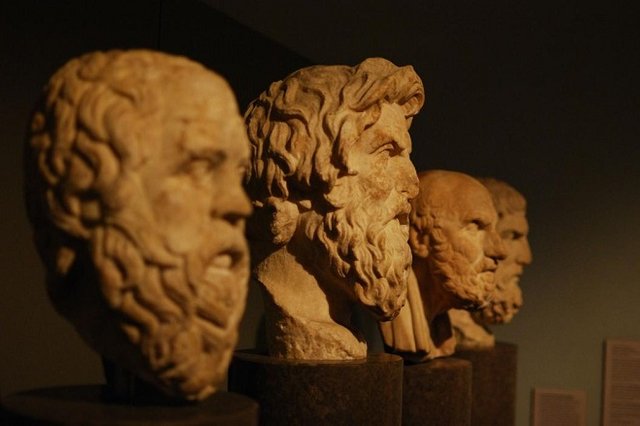Historical forms of relationship between philosophy and private sciences /part 2/
Philosophy has as object the reality at all, while the other physics means science for the parts of reality / the other essay of Aristotel is called "Physics II", studied by the private sciences. In fact, when Aristotle's compositions are stacked, they are replaced. His disciples began to call his work Metaphysics, because when compiling the catalog of his works he was later placed after his composition "First Physics", which in Greek literally refers to metaphysics - what is after physics. Because of this accident, "First Physics" begins to be called "Metaphysics". The casual meaning of the word coincides with the true meaning of this term - "metaphysics". a science of true reality, lying behind what they are revealing to us and given to us by private science and sensory experience.
In other words, it is a science of the first principles and principles of what exists behind the physical, empirical world. This classification highlights the fact that in ancient times private sciences have been distinguished from philosophical knowledge and have had a relatively independent existence in the sphere of philosophy. Therefore, the distinction from Aristotle to "First and Second Physics" is not accidental. In the Middle Ages, which has the strong influence of Aristotle, the scholastics have defined philosophy as a "common doctrine of Being and Principles" or a science of all that can be known through the light of reason that is created to serve the supernatural Revelation. In the Middle Ages the philosophy itself was called "ancilla theologiae" ("minister of theology"). Private sciences at that time have not yet distanced themselves from philosophy. Subsequently, starting with the 16th century, as a result of the stormy progress and rapid expansion of scientific knowledge of the world, began the so-called "process of differentiation" / dismemberment / of the sciences. From the single tree of knowledge and, in particular, from philosophy, different private sciences are separated.
Mathematics, astronomy, mechanics have become ultimately independent sciences (as scientific disciplines) in the XVI-XVII century. Then, the same goes with physics, chemistry, biology and geology - in the nineteenth century, and logic and psychology have only emerged in our century. Of course, these sciences were still inherent in philosophy, but some of them had a relatively independent existence. Their separation in individual sciences becomes only when special scientific language and terminology are developed for them and new laws are created that make up the specific subject of a given science. Then, according to the Comparison of the Wendelbind, philosophy was like King Lear, who gave all parts of the kingdom to his daughters, and for himself he left nothing. As for philosophy, there seems to be no partition of the Study Being. Scientists believe that the so-called " "Primitive syncretism" - all the knowledge of the first people were merged into one, a mixture of various concepts and theories. The tree of knowledge is the Tree of Science: from the primitive syncretism (the stem) to the establishment of the private sciences (the branches).
If the real change in the relationship between philosophy and the science of science is taken into account, the following basic forms should be distinguished:
a) The relationship between philosophy and private sciences, arising relatively independently, regardless of it. For example, these are mathematics, astronomy, medicine, and mechanics.
b) Relationship between philosophy and those sciences that have separated themselves from the very root of philosophy - psychology, formal logic, sociology and others.

Very interesting topic.. I love to know more about sciences!